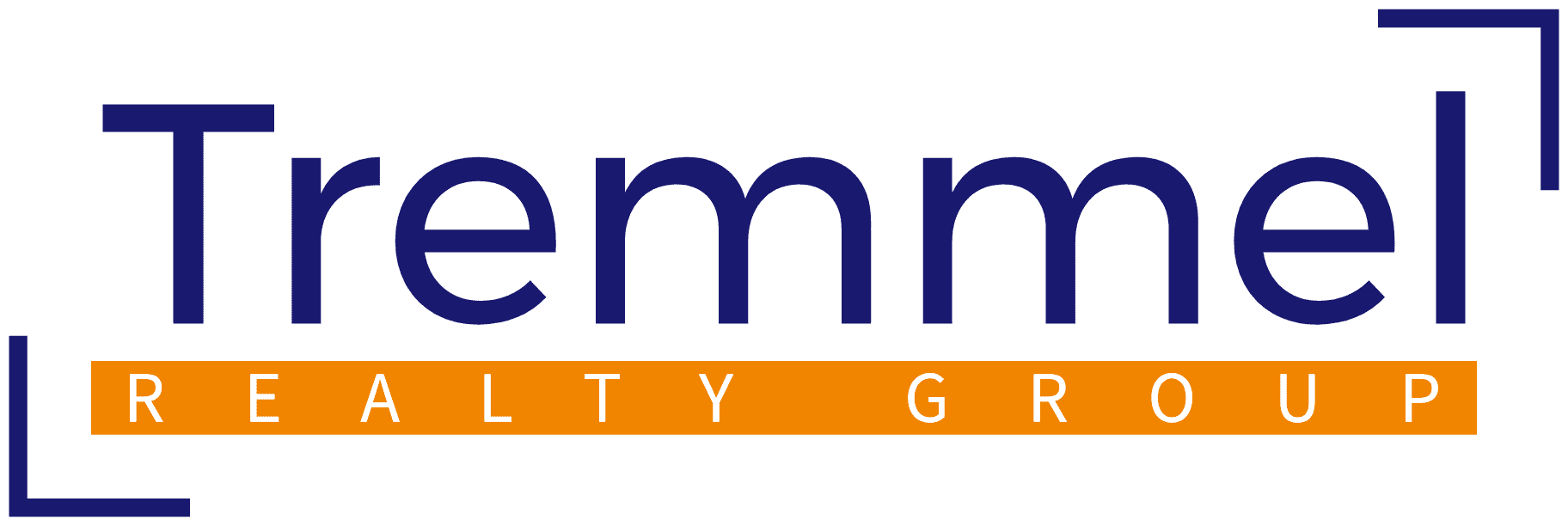Buying homes for sale in Florida is one of the biggest financial decisions you’ll make in your lifetime. Whether you’re moving to the Sunshine State for its beautiful beaches, warm weather, or vibrant communities, purchasing a property here is a major investment. But while this is an exciting journey, it’s essential to be financially prepared!
Beyond the listing price, there are various expenses involved, from the initial escrow deposit to the closing costs in Florida. These can quickly add up, and if you’re not well-informed, they might catch you off guard. As a prospective buyer, you should budget wisely and avoid unexpected financial stress along the way.
So, how much does it cost to buy a house in Florida? Let us break it down for you!
Initial Costs of Buying a Home in Florida
Before you buy your new home in Florida, you’ll need to account for several initial costs. These expenses help ensure that both you and the property you’re purchasing are ready for the transaction.
Escrow Deposit
The escrow deposit, often referred to as earnest money, is one of the first financial commitments a homebuyer makes. It serves as a show of good faith to the seller, indicating that you are serious about purchasing the property.
In Florida, the standard escrow deposit usually ranges from 5%-10% of the purchase price.
So, for example, if you’re buying a home priced at $400,000, you can expect to put down anywhere between $20,000 and $40,000 as an escrow deposit.
This amount is held in an escrow account until the sale is finalized, at which point it’s typically applied to your down payment or closing costs.
Home Inspection
A thorough home inspection allows you to uncover any hidden issues before finalizing the purchase.
During this step, inspectors will evaluate the home’s structural integrity, electrical systems, plumbing, and other key components to ensure everything is in proper working order.
In Florida, home inspection costs can vary depending on the property’s location and size, but they typically range from $325 to $1,000. Inspections for larger homes or properties in high-demand areas might be on the higher end of that spectrum.
While this may seem like an additional expense, it’s a small price to pay to avoid costly repairs down the road.
Home Appraisal
Once you’ve found a home you’d like to purchase, a professional appraisal will be required, especially if you’re securing a mortgage. This written report determines the property’s market value, ensuring that both you and the lender agree on a fair price.
According to a report by World Population Review, the average home appraisal cost in Florida is about $650. This cost may vary slightly depending on the appraiser’s experience, the property’s size, and its location.
Having an appraisal protects you from overpaying for a home and ensures that the property aligns with current market values.
Property Survey
A property survey verifies that the boundaries of the home you’re buying are accurate and that there are no encroachments from neighboring properties. In a way, it ensures that the home complies with local zoning regulations and that no features, such as fences or pools, from adjacent properties infringe on your land.
The latest data from ProMatcher show the average fee for a residential property survey in Florida to be around $648.43. This fee may differ depending on the complexity of the property’s boundaries and the size of the land.
A property survey helps prevent future disputes with neighbors and ensures that the property you’re purchasing is clearly defined.
Closing Costs in Florida
Closing costs in Florida are among the most significant expenses in the home-buying process. These costs cover various fees and services that are required to finalize the purchase.
Down Payment
The down payment is a lump sum that reduces the loan amount you need to finance and demonstrates your commitment to purchasing the property. And, the required amount depends on the type of mortgage you’re securing, as well as your lender’s requirements.
According to Forbes Advisor’s research on the average down payment by state, Florida homebuyers typically make a down payment of 15.20% of the purchase price, with the median down payment being $33,411.
So, if you’re buying a home valued at $220,000, your down payment at this average rate would be around $33,440.
Saving for this expense is crucial, as a larger down payment can lower your monthly mortgage payments and potentially eliminate the need for mortgage insurance.
Lender Fees
Lender fees can include origination fees, application fees, and underwriting fees, all of which compensate the lender for processing your loan. The amount you’ll pay in lender fees varies depending on the lender you choose.
Sometimes, if your down payment is less than 20%, lenders would require you to pay for private mortgage insurance (PMI). This type of insurance protects the lender if you default on your loan.
The cost of PMI also depends on various factors, such as your loan amount and credit score.
Title Fees and Searches
A title search ensures the seller has legal ownership of the property and that there are no existing claims or liens on it. This search confirms that the property is free of any legal obstacles that could prevent the sale from going through.
In Florida, the cost of a title search typically ranges from $150 to $500. Title fees also include the cost of issuing a title insurance policy, which protects you and the lender from any future claims against the property’s title.
Title insurance is a one-time expense, and while optional for buyers, it’s often required by mortgage lenders.
Title-Closing Company Fees
A title-closing company, or settlement company, facilitates the closing process and ensures that all legal and financial aspects of the transaction are handled correctly. It handles the transfer of funds, prepares legal documents, and ensures that all conditions of the sale are met.
Title-closing company fees cover these services and can vary depending on the complexity of the transaction. These fees are typically part of the overall closing costs and are paid at the time of closing.
Agent Commission (If Not Paid by the Seller)
Traditionally, sellers cover the real estate agent commissions, but this has been changing due to recent legal developments in this industry.
Following the NAR Settlement, it’s now possible that buyers could be responsible for paying part of the agent commissions, depending on the agreement made with the seller.
According to Real Estate Witch, home sellers in Florida typically pay an average of 5.05% in real estate commissions, which includes a 2.63% listing agent commission and a 2.42% buyer’s agent commission.
If the responsibility falls to the buyer, this could become a significant added expense during the home-buying process.
Taxes
While Florida doesn’t impose property purchase taxes, certain taxes are still due during the closing process. So, what are the taxes for buying a home in Florida?
- Documentary Stamp Tax – This is a fee levied on documents, such as deeds, bonds, and promissory notes.
- Intangible Tax on the Mortgage – This applies to any loan or promissory note you take out to finance your home.
By understanding and preparing for these closing costs, you’ll be in a better financial position to complete your home purchase in Florida.
On-Going Expenses
Once you’ve purchased your dream home in Florida, the financial responsibilities don’t stop at the closing table. Homeownership involves several ongoing expenses that are essential to budget for, ensuring that you can comfortably maintain your property and manage your household.
Mortgage Payments
If you financed your home purchase with a loan, one of your most significant ongoing expenses will be your monthly mortgage payments. The amount you owe each month will depend on the type of mortgage product you secured, the interest rate, and the loan’s duration.
For example, a 30-year fixed-rate mortgage will typically have lower monthly payments compared to a 15-year mortgage, but you’ll pay more interest over time.
Annual Property Tax
In Florida, homeowners are required to pay annual property taxes based on the assessed value of their property.
These taxes fund local services, such as schools, public roads, law enforcement, and other municipal services, which contribute to the community’s well-being.
Property tax rates in Florida vary depending on the county and municipality where the property is located. It’s important to understand the local tax rate and how it will affect your overall financial commitment as a homeowner.
HOA Fees
Homeowners Association (HOA) fees cover the maintenance of common areas, amenities, and services, such as landscaping, security, and community events.
Some HOAs may charge a few hundred dollars annually, while others may require significantly higher fees. It’s essential to factor this into your budget if you plan to live in an HOA-governed neighborhood.
Home Maintenance and Repairs
Homes naturally experience wear and tear over time, and repairs or replacements will eventually be necessary.
Whether it’s fixing a leaky roof, replacing appliances, or maintaining landscaping, these costs can add up.
As a rule of thumb, you should set aside 1% to 4% of your home’s value annually for maintenance and repair expenses.
Utilities
The amount you’ll pay each month for utility bills depends on your household’s usage and the rates in your area. Some homes may also require additional utilities, such as garbage collection or sewer fees.
Keeping track of these costs is essential to managing your monthly budget.
Other Costs to Consider
Apart from the direct costs of buying a home in Florida, there are additional expenses that you should keep in mind.
Moving Costs
Moving into your new home involves expenses, such as hiring professional movers, renting a moving truck, or purchasing packing supplies. The cost can vary depending on the distance of the move and the volume of your belongings.
Legal Services
While legal representation isn’t always mandatory, it’s often advisable to hire a real estate attorney to review your contracts and protect your interests. Attorneys typically charge an hourly rate or a flat fee for their services.
Generally, hiring a real estate attorney can cost between $750 to $1,250, depending on the complexity of the transaction.
Homeowners Insurance
Homeowners insurance is essential for protecting your property from damage and liability. The cost of insurance depends on factors, such as the location of your home, its value, and the coverage you choose.
In Florida, where hurricanes are a concern, the average homeowner’s insurance is $2,625 annually.
Are You Ready to Buy Your Dream Home in Florida? Work with Me!
Having a clear understanding of the actual cost of buying a house ensures a smooth and rewarding process. After all, who would want to be caught off guard by the hidden costs of buying a home in Florida?
In that case, working with a knowledgeable real estate agent can make all the difference. If you’re ready to buy your dream home in the Sunshine State, I’m here to guide you in every decision, including the financial ones.
Book a call with me for a free consultation, and together we’ll find the perfect home while ensuring you stay on top of all the costs!




